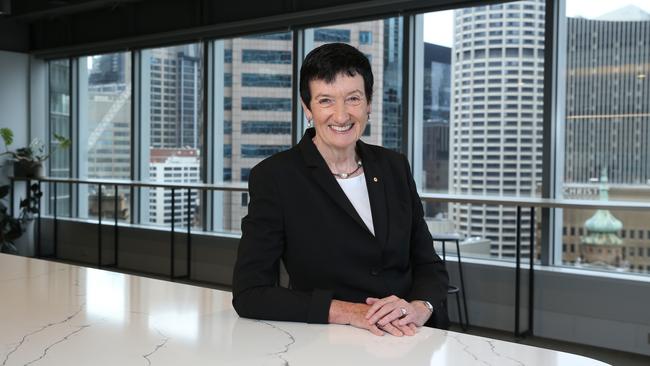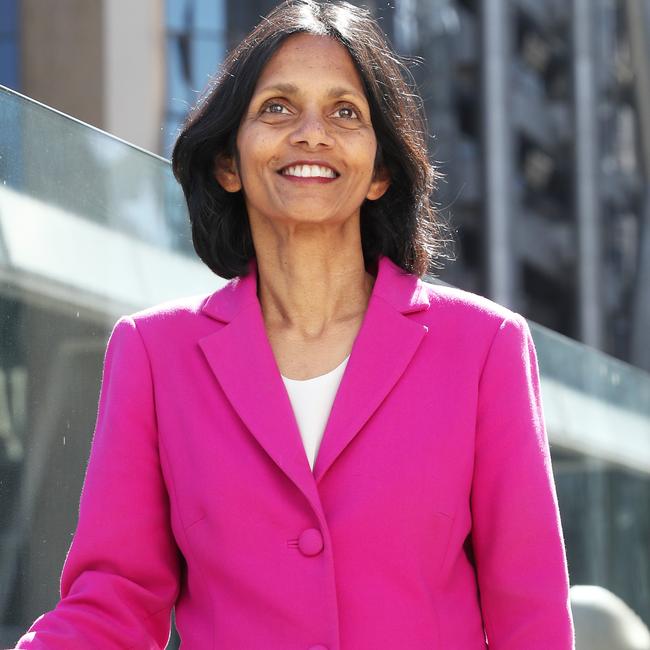Anthony Albanese unveils his business champions
Anthony Albanese has unveiled ten business ‘champions’ for the region and says Australian companies will be given help to derisk their investments in Southeast Asia

Anthony Albanese says companies should make their own assessments about sovereign risk when investing in Southeast Asia, but has announced 10 new “business champions” to help entrepreneurs tackle complex legal and regulatory environments overseas.
The Prime Minister said specialised investment “deal teams” would help Australian companies navigate unfamiliar risks, when asked about a proposal made by Southeast Asia special envoy Nicholas Moore in his 2040 Southeast Asian economic strategy that consideration be given to a form of “political risk insurance”.
Speaking at the ASEAN-Australia special summit in Melbourne on Tuesday, BCA chief executive Bran Black said: “We are very interested in working through what that might look like if it is something the government is looking at.
“No business relationship can be risk-free, but to the extent that you can minimise risks, to the extent that you can work together … that’s ultimately a good thing.”
Mr Moore said Australian companies looking to invest in ASEAN countries could use the $2bn earmarked in funding from Export Finance Australia to insure against the political risk of long-lead-time projects.
He told The Australian the new facility announced by Mr Albanese on Tuesday, combined with the expertise of “deal teams” being embedded across the region, would bolster investment confidence in infrastructure, energy and other projects.

“It potentially gives (project developers) heft in terms of when they go to talk to their investors, to say we’ve got approval from EFA to put in X amount of equity or Y amount of debt … or whatever they think will be necessary to catalyse the project,” he said. “At the moment, EFA hasn’t been active in the region. With the deal teams we will be able to get the focus on the region. From that, deals will naturally flow.”
Asked about how Australian businesses could assess the danger of sovereign risk, corruption and bribery before investing in Southeast Asia, Mr Albanese said: “We think that businesses are in a position to make assessments. The idea of the deal teams … is you’ll have experts, including experts at the legal system, who will examine and make recommendations about issues like sovereign risk.”
The 10 new business champions announced by Mr Albanese – tasked with being “key advocates for Australia’s trade and investment ties” – will each be assigned a country in the region where they can specialise in unlocking new business opportunities.

They include Western Sydney University chancellor Jennifer Westacott, who will be given responsibility for Indonesia; ANZ chief executive Shayne Elliott, who will be given responsibility for Singapore; and Macquarie Group boss Shemara Wikramanayake, who will have carriage for opening-up new opportunities in The Philippines.
Aurecon chief operating officer Louise Adams will have responsibility for deepening business relations with Vietnam and Lendlease chief executive Tony Lombardo will be assigned Malaysia.
Agcotech chair Charles (Chick) Olsson will take carriage of strengthening business engagement in Laos, while executive chairman of Linfox, Peter Fox, will have responsibility for Thailand.
Executive chairman of MGA Insurance Brokers, John George, will assist businesses looking for new opportunities in Cambodia, while East Timor Trading Group, chair Sakib Awan, will have responsibility for East Timor and Pristine Pacific Australia executive director Nur Rahman, has been assigned Brunei.
Speaking to The Australian, Ms Westacott said the announcement of business champions was a “terrific initiative” to help tap the knowledge of individuals with strong business connections who “understand what is going to motivate companies to invest”.
Skills and Training Minister Brendan O’Connor said the government would launch a pilot program for young professionals to arrange exchanges and internships in key industries. Mr O’Connor said 100 people would be placed in sectors that “support Australia’s strategic objectives”.



To join the conversation, please log in. Don't have an account? Register
Join the conversation, you are commenting as Logout